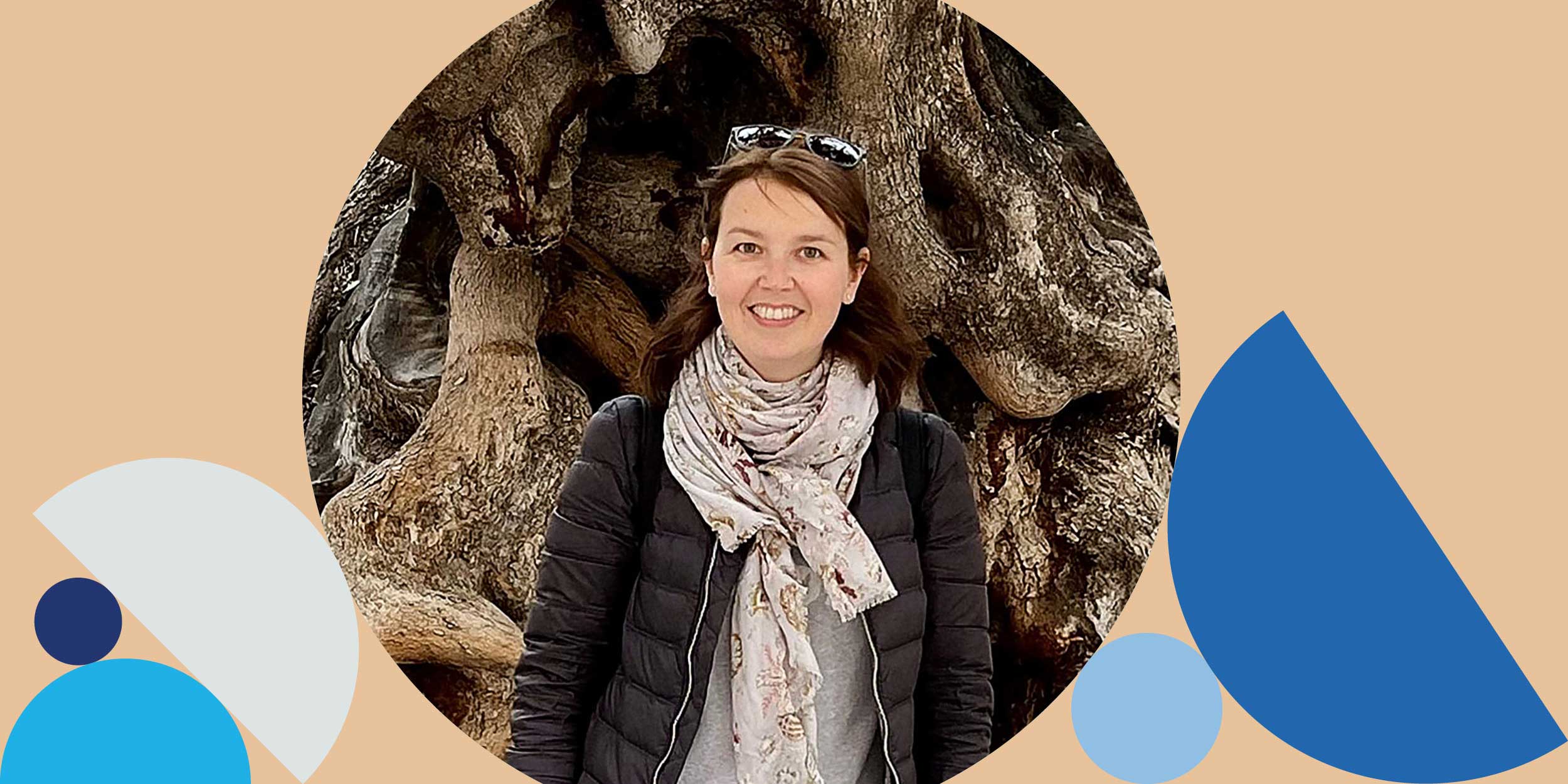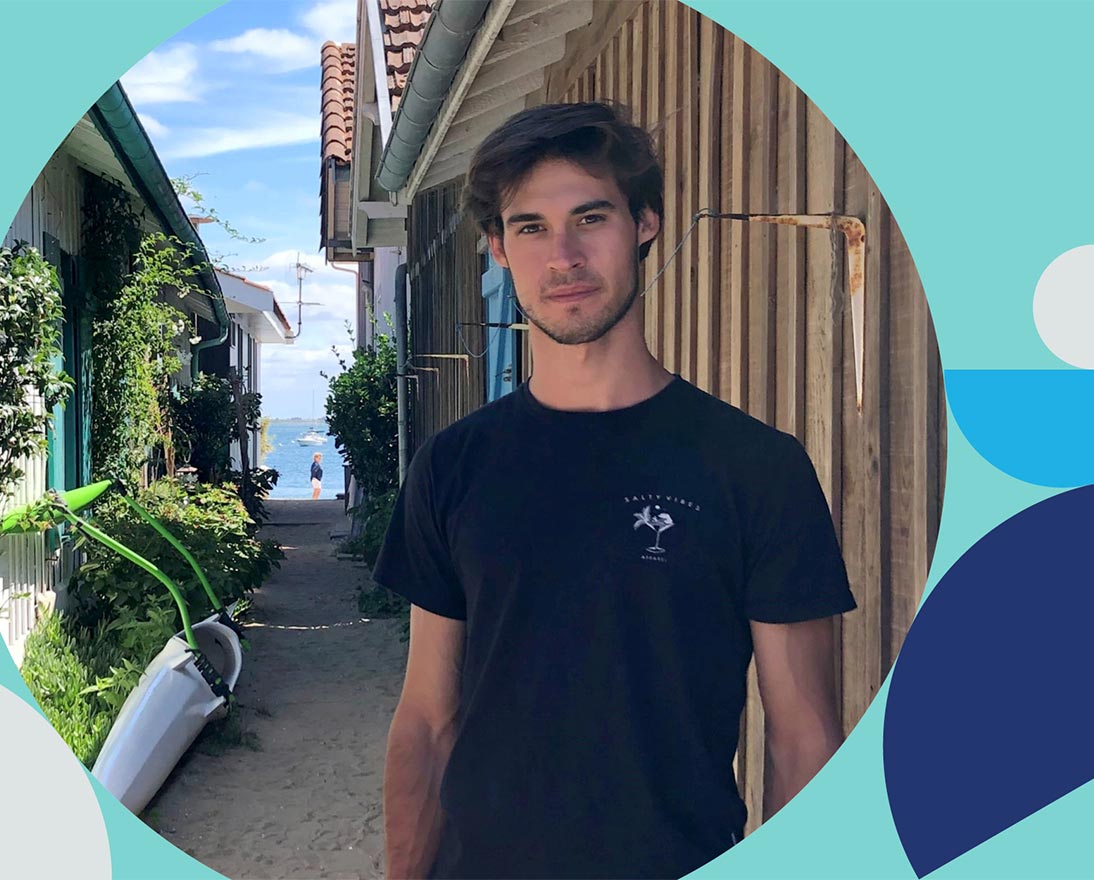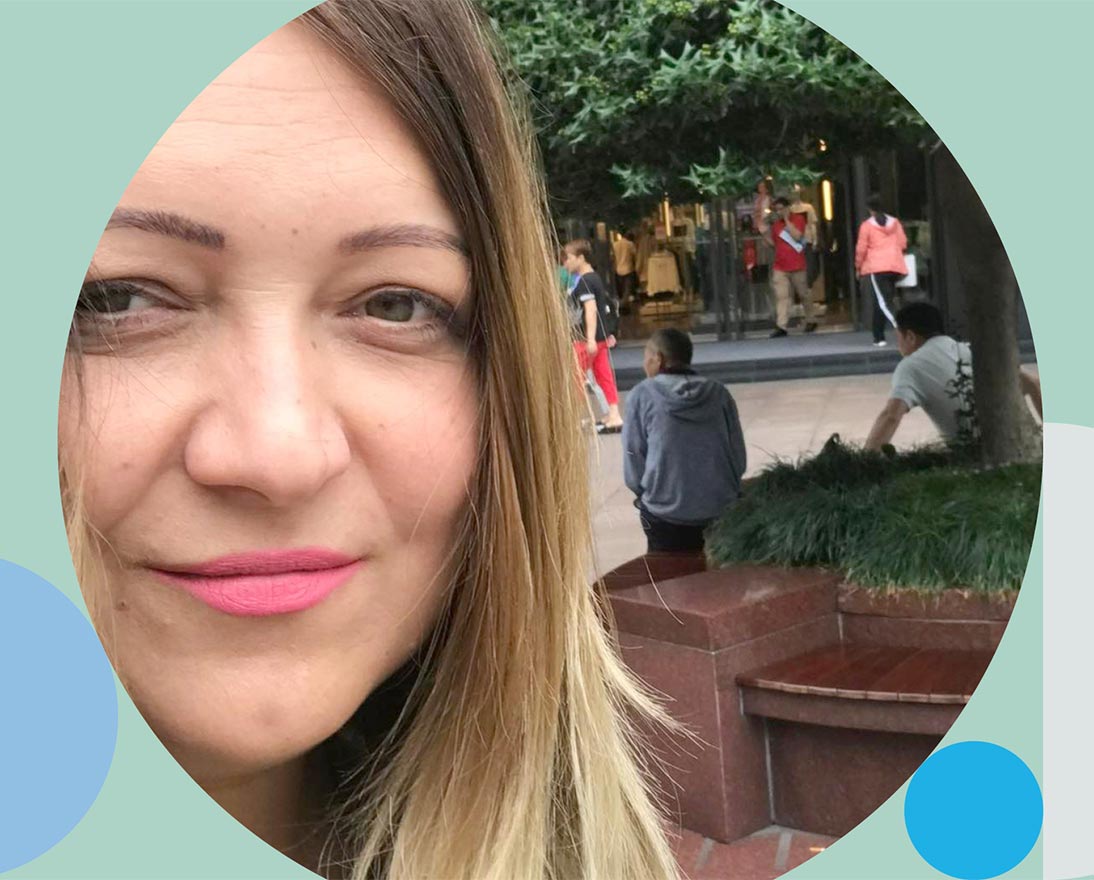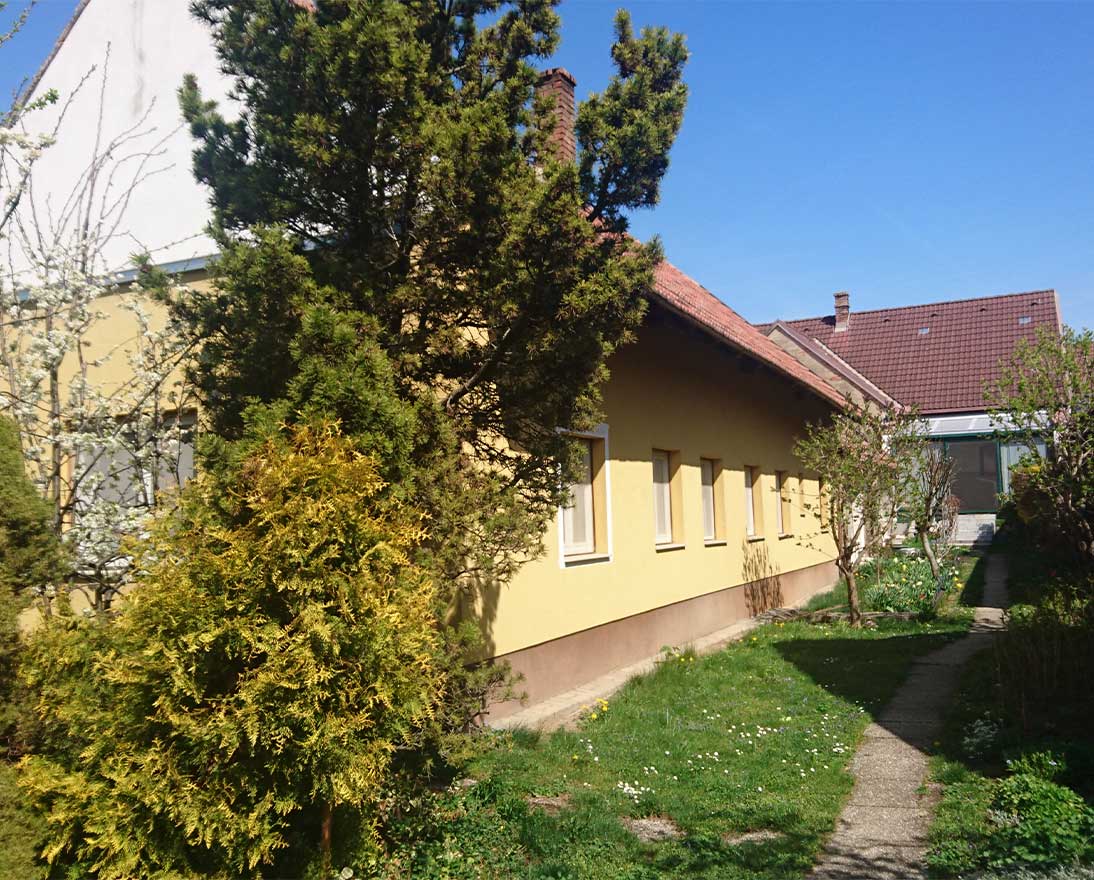It’s good to talk
PeopleArticleMay 23, 2022
Banc Sabadell Vida employee Inga Kayro Malenko speaks Ukrainian, Russian, Spanish and English – so she’s using her linguistic skills to help the Ukrainian-Russian refugee community in the city she’s called home for more than 20 years, Barcelona.
“When war broke out, it was very personal for me. I’m from Ukraine and while I now live in Spain, I have many friends and family still living back home – so I wanted to do something to help.”
Meet Inga Kayro Malenko, HR Business Partner for Banc Sabadell Vida, the Sabadell Zurich joint venture in Barcelona. She’s been living in Spain for more than 20 years, is married with two young children, and when she’s not juggling the demands of her career and family life, finds the time to do something that’s making a real difference for people impacted by the conflict in her homeland.
“I’m an interpreter,” she says proudly.
Overcoming the language barrier
Spain has welcomed many refugees since the conflict in Ukraine broke out: more than 110,000 according to a statement from Spanish prime minister Pedro Sanchez during a visit to a Barcelona refugee center in April 2022. And as is the case with anyone in a new country, one of the biggest challenges they face is the language.
“Ukrainian-Russian communities and Spanish people don’t typically speak each other’s language,” explains Inga. “You may find some who speak English, but generally communication between them is challenging. I speak Ukrainian, Spanish, English and Russian, so for me it was clear I could have the most impact by providing translation support.”
Her local Red Cross branch gave her the opportunity she was looking for. “I sent them an email and the very next day they sent me one back saying, ‘please come and help’.”
A helping hand
With a young family and full-time job, Inga’s first challenge was finding a time when she could get involved. “Luckily, my employer has been really supportive,” says Inga. “When I first told my manager I wanted to do this she said to me, ‘Just do it, and we’ll work out the rest.’ Since then, I’ve been able to use volunteer days to spend around half a day with the Red Cross roughly once a week.”
This sees Inga go with the Red Cross team to meet refugees living in hotels around the area.
“The first couple of times I went, I was answering questions about anything and everything you can think of: do I have access to medicines; am I able to work; where can I get things for my baby; can my kids go to school; where can we live; is there a language course available; can I use public transport? People just had so many questions and I think they really appreciated having someone there to talk with in their own language.”
“The third time I went, it was more structured,” continues Inga. “We were split up into different teams to help people with different topics. My group’s goal was to help people enrol in official Spanish refugee protection programs. Together with a lawyer and someone who answered questions about the programs, we would work with people to complete paperwork, gathering data about things like where they were from, how they arrived in Spain, their family, their skills, what they wanted to do in the future etc. In this way, we could help people get into the Spanish system and take steps towards a new life.”
Hope for the future
In meeting people, Inga has heard many stories. “Obviously everyone has a slightly different experience, but there are some aspects that are common across most people you meet,” says Inga. “Everyone I met wants to work and the vast majority have a university education. But they realise they’re unlikely to get work in their area of expertise, so they are open to doing anything.”
“They recognize that language is a barrier, so they are taking steps to learn Spanish through courses and online learning. But this takes time, particularly when people generally find themselves in Ukrainian-Russian speaking communities and don’t often get the opportunity to practice.”
“Of course, everyone you talk with is grateful that Spain has opened their door to them,” shares Inga. “They look forward to the day when it is safe to return to their lives in Ukraine, but until that day comes, they are very keen to do everything they can to integrate in Spain.”
Upon saying this, a thought crosses Inga’s mind that brings a smile to her lips. “Today for example, there was a family who were so excited because their children had just had their first day at school in Spain. They were so unbelievably happy about it and couldn’t stop telling me how much their children enjoyed it. Of course, the children can’t understand anything right now, but the teachers and classmates were so open and kind to them and made a real effort to involve them in the lessons and experiments they were doing. The system is very different to Ukraine, so for them it was really interesting to see.”
“It’s great when you meet a family who has a happy story to tell. Hopefully over time, we’ll see more smiles returning to people’s faces.”



